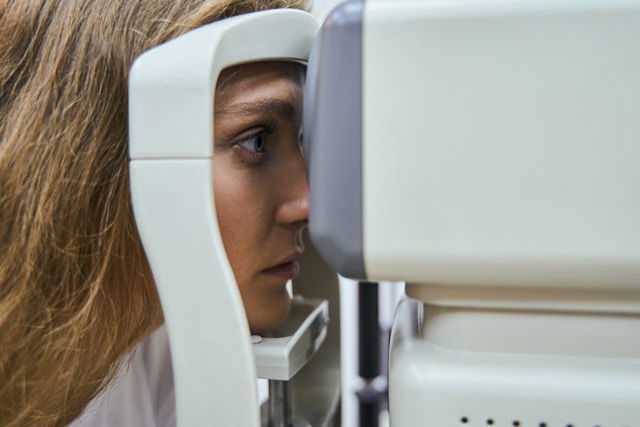
A new study suggests that people taking a certain kind of blood pressure medicine, called Calcium Channel Blockers (CCBs), may have a higher chance of developing glaucoma.
Glaucoma is a serious eye condition that can cause permanent vision loss if it’s not caught early.
The research was led by Dr. Alan Kastner and his team from Moorfields Eye Hospital and University College London. They studied health data from 427,480 adults in the UK. Among them, 33,175 people were taking CCBs to help control their blood pressure.
Glaucoma usually happens when pressure builds up inside the eye, damaging the optic nerve. Because it often has no symptoms in the beginning, it’s sometimes called the “silent thief of sight.” Once vision is lost, it cannot be brought back, so early diagnosis and treatment are very important.
The researchers wanted to see if using CCBs affected the risk of developing glaucoma. After looking at other factors like age, lifestyle, and health history, they found that people taking CCBs were more likely to have glaucoma than those who were not taking them.
Interestingly, this increased risk was not found in people who used other types of blood pressure medicine.
Another surprising part of the study was that many people taking CCBs had normal eye pressure, even though they showed early signs of glaucoma. This is unusual because glaucoma is usually caused by high eye pressure. The findings suggest that CCBs might affect the eyes in a different way, not just by changing eye pressure.
The researchers noticed that the eyes of people taking CCBs showed changes that looked like the early stages of glaucoma. This raises new questions about how these medications work in the body and how they might influence eye health.
CCBs are often prescribed to help blood flow better by relaxing blood vessels, which lowers blood pressure. High blood pressure is also a “silent” condition that can lead to serious health problems like heart attacks and strokes if left untreated.
Millions of people around the world take CCBs to stay healthy. These medications are very important in preventing heart disease. However, this study points to a possible side effect that doctors and patients should be aware of—especially people who are already at higher risk for glaucoma.
This includes older adults, people with a family history of glaucoma, or those with conditions like diabetes.
Because of these findings, it’s a good idea for people taking CCBs to have regular eye exams. This can help catch any signs of glaucoma early, while treatment is still possible.
Dr. Kastner and his team plan to continue studying this issue to better understand why CCBs might raise glaucoma risk. They want to know whether these drugs directly cause the problem or if something else is responsible.
If you take CCBs, this study doesn’t mean you should stop your medicine. CCBs help many people control their blood pressure and prevent serious health events. But it’s smart to talk with your doctor, especially if you are at risk for glaucoma. Your doctor might suggest an eye check-up just to be safe.
This research reminds us that even common medications can sometimes have unexpected effects. Staying informed and having regular check-ups is the best way to protect both your heart and your vision.
The full results of this study can be found in the medical journal JAMA Ophthalmology.
If you care about eye health, please read studies about how vitamin B may help fight vision loss, and MIND diet may reduce risk of vision loss disease.
For more information about eye disease, please see recent studies about how to protect your eyes from glaucoma, and results showing this eye surgery may reduce dementia risk.
Copyright © 2025 Knowridge Science Report. All rights reserved.



